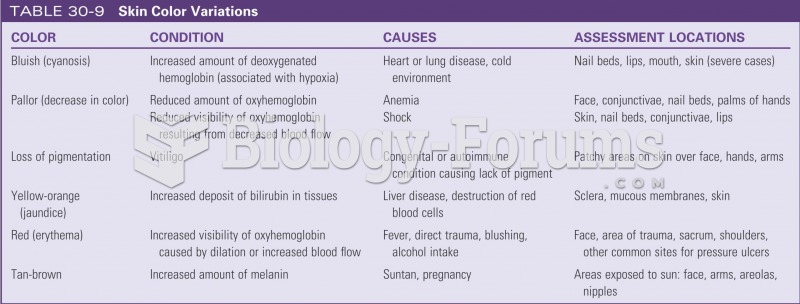|
|
|
Excessive alcohol use costs the country approximately $235 billion every year.
Giardia is one of the most common intestinal parasites worldwide, and infects up to 20% of the world population, mostly in poorer countries with inadequate sanitation. Infections are most common in children, though chronic Giardia is more common in adults.
Certain topical medications such as clotrimazole and betamethasone are not approved for use in children younger than 12 years of age. They must be used very cautiously, as directed by a doctor, to treat any child. Children have a much greater response to topical steroid medications.
Illicit drug use costs the United States approximately $181 billion every year.
There are more bacteria in your mouth than there are people in the world.







